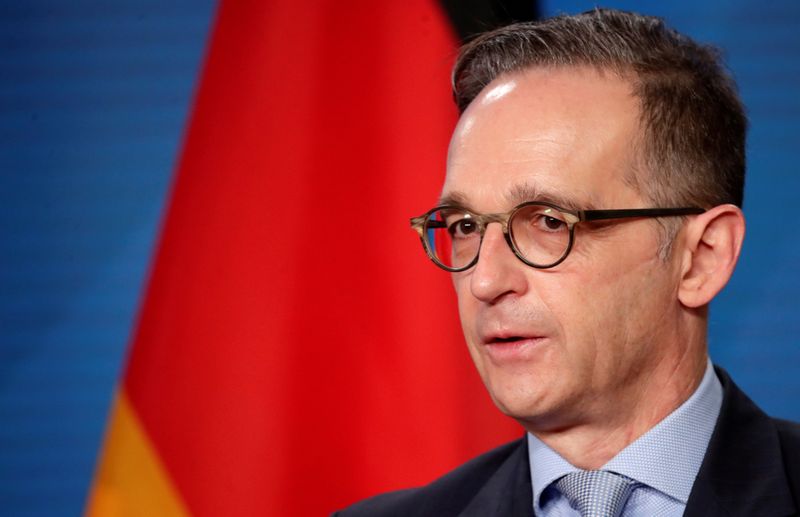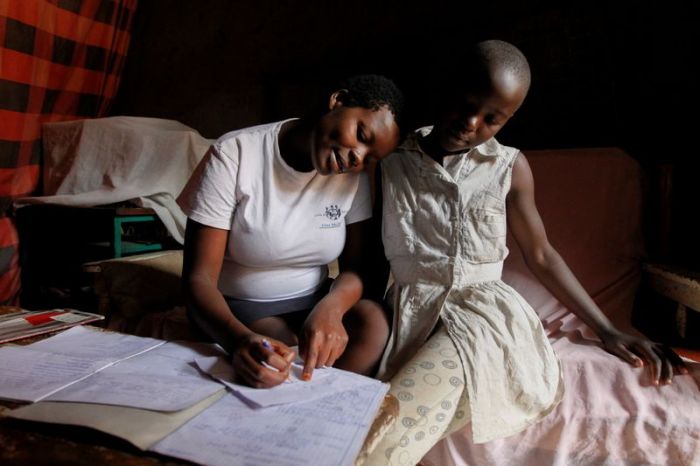BRUSSELS (Reuters) – The European Union’s German presidency said on Tuesday it was confident of finding a quick solution to Poland and Hungary’s blockage of the EU’s 1.8 trillion euro ($2.14 trillion) financial package to revive an economy depressed by the COVID-19 pandemic.
Budapest and Warsaw vetoed the adoption of the 1.1 trillion euro 2021-2027 EU budget and the 750 billion euro recovery fund on Monday because the budget law included a clause which makes access to money conditional on respecting the rule of law.
“There is so much money involved which so many countries in the European Union need and are waiting for, that we not only need a solution but we need it quickly,” said German Foreign Minister Heiko Maas, whose country holds the rotating EU presidency. “I am sure that we will be able to do that.”
He echoed comments on Monday by Frances Europe minister, Clement Beaune, who said: “A solution will be found in the coming weeks.”
The nationalist governments in Budapest and Warsaw used their vetoes because they are under a formal EU process investigating them for undermining the independence of courts, media and non-governmental organisations.
If the link is introduced, they risk losing access to tens of billions of euros in EU funds. Poland is to get at least some 133 billion euros from the EU under the budget and recovery plans and Hungary around 41 billion euros, one of the highest per capita cash inflows in the 27-member EU.
They have a strong hand, because the budget and the recovery fund require unanimous support. Without it, no EU country will receive any EU money in coming years, including Poland and Hungary themselves, who are large net beneficiaries of EU funds.
But removing the link is not an option either as a large group of countries, led by the Netherlands, and the European Parliament refuse to approve the budget without it.
The Polish government said it was waiting for proposals from the German presidency, and Polish media quoted unnamed ruling party officials as saying Warsaw wanted the link diluted, if it cannot be removed altogether.
The opposition to the 1.8 trillion package is likely to be discussed during an EU leaders’ call on Thursday that was supposed to be devoted to coordinating the EU response to the pandemic, but no decisions are expected then, officials said.
Hungarian Prime Minister Viktor Orban and Poland’s de facto ruler, Jaroslaw Kaczynski, face strong domestic pressures and see a battle with the EU over what they define as sovereignty as helping them regain falling domestic support.
Some opinion polls show backing for Poland’s ruling party fell 10 points in recent months over a number of issues, a trend which the right wing of the governing coalition wants to exploit to gain influence.
In Hungary, Orban faces an election in 2022 and trails the opposition in opinion polls for the first time in over a decade because of the pandemic and its effects on the economy.
(Additional reporting by Krisztina Than and Marton Dunai in Budapest; Sabine Siebold, Kirsti Knolle in Berlin and Marcin Goclowski and Pawel Florkiewicz in Warsaw; Reporting by Jan Strupczewski; Editing by Angus MacSwan and Timothy Heritage)
























